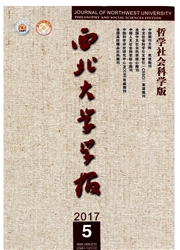

 中文摘要:
中文摘要:
通过采用统计研究和实证研究等方法,对1990--2011年间我国货币政策产出效应进行分析,结果表明:实际货币供给增长率高于货币供给合理区间,货币政策会有效推动产出,同时会牺牲物价的稳定:实际货币供给增长率低于货币供给合理区间,会导致经济增长面,临下行风险。总体研究结论是:我国货币供给的GDP产出呈现明显的持续下降趋势,表明伴随中国市场化改革进程经济货币化程度日益加深,依靠货币供给推动经济增长的空间已越来越小,中国未来经济增长不能走单纯投资驱动的老路。
 英文摘要:
英文摘要:
By adopting statistical research and empirical research methods, this paper conducts an analysis on the output effects of Chinese monetary policy in the 22 years from 1990 to 2011. The results indicate that if real money growth is higher than a reasonable range of money supply, the monetary policy can effectively promote the output and at the expense of price stability ; if real money growth is lower than a reasonable range of money supply, the e- conomy growth will face a downside risk. The overall research results shows that GDP growth contributed by money supply presents a continuing downward trend which indicates that with the deepening economic monetization in the process of China's marketization, the room for money supply to boost economic growth is shrinking so in the future, China's economic growth should not only depend on investment driven method.
 同期刊论文项目
同期刊论文项目
 同项目期刊论文
同项目期刊论文
 期刊信息
期刊信息
